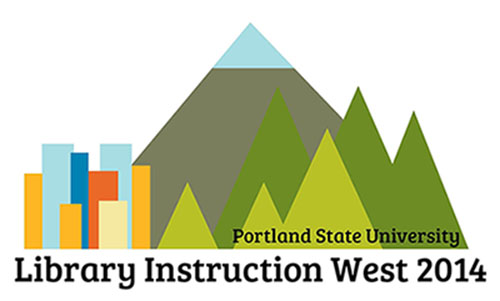Location
Portland State University, Portland, Oregon
Start Date
7-24-2014 11:15 AM
End Date
7-24-2014 12:15 PM
Subjects
Information literacy -- Study and teaching -- Congresses, Library instruction
Description
As our college campuses grow increasingly racially and ethnically diverse, it is essential to the sustainability of our library instruction programs that we understand teaching and learning in a cultural context. Librarians at the University of Washington Bothell and Cascadia Community College strive to design information literacy instruction that facilitates an inclusive, diverse space where multiple modes of communication are developed and rewarded. In this presentation, we will share examples of our own successes and failures designing culturally responsive information literacy sessions and discuss strategies for introducing culturally-grounded participation, problem-solving, and discourse styles into library instruction. We encourage participants to bring lesson plans, worksheets, and assessment activities to the workshop where we will provide time and guidance to revise those materials with reference to culturally responsive pedagogy. Together, we will compile ideas and examples of culturally responsive teaching, assessment, and communication practices in the information literacy classroom.
Persistent Identifier
http://archives.pdx.edu/ds/psu/14525
This is a handout which accompanies: Opening Our Information Literacy Classrooms to Culturally Responsive Pedagogy
Included in
Opening Our Information Literacy Classrooms to Culturally Responsive Pedagogy
Portland State University, Portland, Oregon
As our college campuses grow increasingly racially and ethnically diverse, it is essential to the sustainability of our library instruction programs that we understand teaching and learning in a cultural context. Librarians at the University of Washington Bothell and Cascadia Community College strive to design information literacy instruction that facilitates an inclusive, diverse space where multiple modes of communication are developed and rewarded. In this presentation, we will share examples of our own successes and failures designing culturally responsive information literacy sessions and discuss strategies for introducing culturally-grounded participation, problem-solving, and discourse styles into library instruction. We encourage participants to bring lesson plans, worksheets, and assessment activities to the workshop where we will provide time and guidance to revise those materials with reference to culturally responsive pedagogy. Together, we will compile ideas and examples of culturally responsive teaching, assessment, and communication practices in the information literacy classroom.


